#philippe iv
Explore tagged Tumblr posts
Text

At the king’s request, Clement V issued on January 7, 1307 a dispensation addressed to Jeanne and the young Philip to remove the bars of kinship and common decency. Curiously, of the latter impediment Clement remarked, “whatever such grounds there may be, such as, for example, as some are said falsely to assert, the existence of a betrothal between Louis and Jeanne.” The pope, perhaps impressed by the urgency of the king’s suit, was clearly disregarding—or overlooking—his bull of August 18, 1305 for Louis and Marguerite. In an accompanying letter sent to the king on the same day, January 7, 1307, Clement rehearsed the contents of the bull and stated that the king himself had declared false the belief some people had spread abroad that Louis and Jeanne had been betrothed. This is exceedingly curious. Pope Boniface’s prohibition in 1297 against the marriage of Jeanne to the king’s eldest son may, however, have convinced King Philip of the nullity of Louis’s contract with Jeanne, even though Boniface’s pronouncement on natural decency implied that their union, despite his disapproval, was valid. Far more puzzling, in light of Boniface’s decree on natural decency and King Philip’s earlier admissions, is Clement V’s willingness to accept the king’s declaration at face value. Clearly Clement had been pressed repeatedly to grant the dispensation. Philip himself had asked for it when he had visited the pope, and his envoys had frequently repeated his request. Clement said that he had become convinced by their arguments that the marriage would “exalt your name and honor and advance the peaceful and tranquil state of your kingdom and all Christianity.” But he was concerned by the steps he had taken. After treating other questions, he returned to the subject of dispensations, to caution Philip the Fair to cultivate discretion in arranging his children’s marriages. Clement reminded the king of the general dispensation for consanguinity that he had issued for the king’s children when Philip was with him in Lyon; he asked the king to return to him either that privilege or the dispensation granted to Philip and Jeanne. The pope asserted that it was not “fitting” (conveniens) for the king to have two such privileges from one pope under different dates and forms. He declared it his duty to lead the king to “restrain his appetite for dispensations” and to seek them only when they would bring great and evident benefit to the kingdom and advance the cause of peace and Christendom. He waxed eloquent in declaring to Philip that otherwise he risked offending “the king of kings” — Rex regum. Clement admitted his fear that God’s wrath would fall on the person who granted such requests— evidently Clement himself—as well as on the person—Philip the Fair—who used them. This was not the only time Clement upbraided Philip and expressed his indignation at the acts the king pressed him to perform—yet despite his protests, on this occasion as on others, he yielded.
Elizabeth A. R. Brown, 'Philip the Fair and His Family: His Sons, Their Marriages, and Their Wives', Medieval Prosopography, Vol. 32 (2017), 162-164
2 notes
·
View notes
Text
Loyal brothers
The Capetian kings found their brothers no more difficult than their sons. The exceptions were the brothers of Henri I, Robert and Eudes, but thereafter the younger Capetians developed a tradition of loyalty to their elders. Robert of Dreux, the brother of Louis VII, who was the focus of a feudal revolt in 1149, was only a partial exception, for at that date the king was still in the East, and the real object of the hostility was the regent Suger. By contrast, Hugh of Vermandois was described by contemporaries as the coadjutor of his brother, Philip I. St Louis's brothers, Robert of Artois, Alphonse of Poitiers, and Charles of Anjou, never caused him any difficulties, and the same can be said of Peter of Alençon and Robert of Clermont in the reign of their brother Philip III. Even the disturbing Charles of Valois, with his designs on the crowns of Aragon and Constantinople, was always a faithful servant to his brother Philip the Fair, and to the latter's sons. The declaration which he made when on the point of invading Italy in the service of the Pope is revealing:
"As we propose to go to the aid of the Church of Rome and of our dear lord, the mighty prince Charles, by the grace of God King of Sicily, be it known to all men that, as soon as the necessities of the same Church and King shall be, with God's help, in such state that we may with safety leave them, we shall then return to our most dear lord and brother Philip, by the grace of God King of France, should he have need of us. And we promise loyally and in all good faith that we shall not undertake any expedition to Constantinople, unless it be at the desire and with the advice of our dear lord and brother. And should it happen that our dear lord and brother should go to war, or that he should have need of us for the service of his kingdom, we promise that we shall came to him, at his command, as speedily as may be possible, and in all fitting state, to do his will. In witness of which we have given these letters under our seal. Written at Saint-Ouen lès Saint-Denis, in the year of Grace one thousand and three hundred, on the Wednesday after Candlemas."
This absence of such sombre family tragedies as Shakespeare immortalised had a real importance. In a society always prone to anarchy the monarchy stood for a principle of order, even whilst its material and moral resources were still only slowly developing. Respectability and order in the royal family were prerequisites, if the dynasty was to establish itself securely.
Robert Fawtier - The Capetian Kings of France
#xii#xiii#xiv#robert fawtier#the capetian kings of france#henri i#robert i de bourgogne#louis vii#robert i de dreux#abbé suger#philippe i#hugues de vermandois#louis ix#robert i d'artois#alphonse de poitiers#charles i d'anjou#philippe iii#pierre d'alençon#robert de clermont#philippe iv#charles de valois
8 notes
·
View notes
Photo

Plongez dans l'histoire fascinante des Templiers ! ⚔️😱 Saviez-vous qu'ils étaient les chevaliers les plus puissants du Moyen Âge avant de connaître une fin tragique ? Trahis, capturés et brûlés vifs, leur légende continue de susciter de nombreuses questions. Qui étaient vraiment ces mystiques guerriers ? Pourquoi le roi de France a-t-il orchestré leur chute ? Dans notre dernière vidéo, nous explorons leur épopée, de leur naissance en Terre Sainte à leur chute brutale, sans oublier les mystères qui entourent leur trésor perdu. 💰🤫 Ne manquez pas cette plongée dans le passé et abonnez-vous pour découvrir plus d'histoires épiques ! 👉 Regardez la vidéo complète sur YouTube !
#Templiers#MoyenÂge#histoire#chevaliers#Philippe IV#trésor perdu#Légendes#mystères#histoire médiévale#épopée
0 notes
Text
i got new art supplies and decided to draw gru!!!

#fanart#hockey art#seattle kraken#philipp grubauer#ive been hunched over this drawing for days so my back is very happy i finished it
60 notes
·
View notes
Text
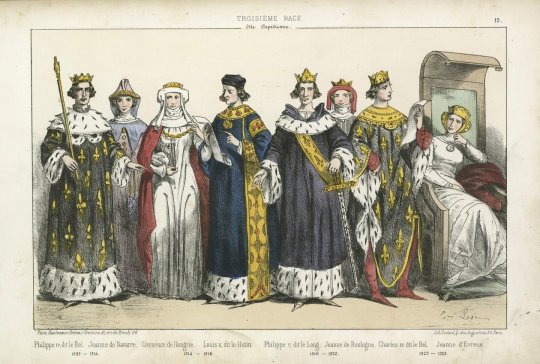
The last kings and queens of the Capetian dynasty.
#royaume de france#capétiens#vive le roi#vive la reine#Philippe IV le Bel#Jeanne Ire#reine de navarre#louis x#comte de champagne#Clémence de Hongrie#Philippe V le Long#Jeanne II de Bourgogne#charles iv le bel#Jeanne d'Évreux#engravings#royalty#les rois maudits#maurice druon#champagne#roi de navarre
12 notes
·
View notes
Text
L'hommage du roi Edouard

Les murs de Fontainebleau résonnaient des échos d'une cour royale en effervescence. Les nobles, vêtus de riches étoffes, se pressaient autour de la salle du trône, où l'air était chargé d'une tension palpable. Edouard Ier, roi d'Angleterre, se tenait là, le visage impassible, mais son cœur battait à tout rompre. À 47 ans, il avait connu la guerre, la conquête et la trahison, mais aujourd'hui, il se trouvait dans une position délicate, contraint de se plier aux exigences de son cousin, Philippe IV surnommé par la cour, le Bel, roi de France.
Philippe, à peine âgé de 18 ans, avait l'allure d'un jeune homme sûr de lui, mais son regard trahissait une intelligence aiguisée. Il savait que cette rencontre était bien plus qu'un simple hommage pour la Guyenne ; c'était un jeu de pouvoir, un équilibre fragile entre deux royaumes. Edouard, bien que vassal par obligation, ne pouvait s'empêcher de ressentir une certaine indignation à l'idée de se mettre à genoux devant un jeune roi.
« Mon cousin, » commença Philippe avec un sourire diplomatique, « je suis honoré de vous accueillir ici. Votre présence témoigne de votre loyauté envers la couronne française. »
Edouard, le regard fixé sur le sol, se força à plier le genou. Le bruit de son armure résonna dans le silence de la salle, et il sentit le poids de l'humiliation sur ses épaules. Jurer allégeance à Philippe, même pour la Guyenne, lui semblait une trahison envers son propre royaume. Pourtant, il savait que la politique exigeait des sacrifices.
« Je jure fidélité et hommage, » déclara-t-il d'une voix grave, chaque mot pesant comme une pierre.
Philippe, bien conscient de la réticence d'Edouard, s'approcha et l'embrassa sur les deux joues, un geste amical mais chargé de signification. « Nous sommes liés par le sang et par le devoir, cher cousin. Ensemble, nous pouvons renforcer nos royaumes. »
Edouard se redressa lentement, son regard croisant celui de Philippe. Dans les yeux du jeune roi, il pouvait voir une ambition brûlante, une volonté de conquête qui ne tarderait pas à se manifester. Bien qu'il ait juré allégeance, Edouard savait que cette soumission n'était qu'une façade. Le véritable pouvoir résidait dans la ruse et la stratégie, et il était déterminé à ne pas laisser Philippe prendre l'ascendant.
« Que cela soit un nouveau départ pour nos deux royaumes, » répondit Edouard, sa voix empreinte de détermination. « Mais sache, Philippe, que je ne suis pas un homme à sous-estimer. »
Philippe sourit, un éclat de défi dans ses yeux. « Je ne l'oublierai pas, cousin. La rivalité entre nos couronnes est aussi ancienne que le temps lui-même. Mais aujourd'hui, nous avons l'occasion de bâtir quelque chose de plus grand. »
Les deux rois se séparèrent, chacun conscient que cette rencontre marquait le début d'une danse complexe entre loyauté et ambition. Fontainebleau, témoin silencieux de leur engagement, savait que l'histoire des deux royaumes était loin d'être écrite.
#history medieval#medieval history#histoire de france#Philippe le bel#Philip IV of France#Philippe IV de France#Edward I of England#Edouard I#king of france#king of england#fanfic#13th century
3 notes
·
View notes
Text
So you remember Mark Antony sneaking into Curio's house through the roof? Here's the best quote I've ever read about it.
Antony compromises the integrity of the household as an architectural unit.
HELP! I can't...
Antony compromises? The integrity? Of the household? As an architectural unit?? By sneaking in through the roof? To meet with Curio??? This is so funny to me I can't. Compromises the integrity of the household as an architectural unit, huh.
Actually, I think the entire chapter that quote came from is a work of art. Look at this part.
The scenario Cicero conjures up features plot elements of romantic New Comedy, suitably blackened, with the youthful libertine (Curio Junior) and his lover (Antony) running foul of Curio Senior, who, playing the strict father familiar from the comic stage, repeatedly chucks his son’s homeboy out of the house — to no avail.
TO NO AVAIL
I'm looking at this book's table of contents and I think I have to read it. Just look at some of the chapter titles!
Family Therapy: Cicero as Counselor
Hitting 'Fast-Forward,' or: How to Pull Off a Praeteritio
Antony Adrift
Caesar's Approach to HR, or Why Antony Has What it Takes
Antony Augur, Addled and Addling
Antony Colonized a Colony!
Antony's Enrichment Activities
HELPP
This book is Cicero, Philippic 2, 44-50, 78-92, 100-119: Latin Text, Study Aids with Vocabulary, and Commentary by Ingo Gildenhard.
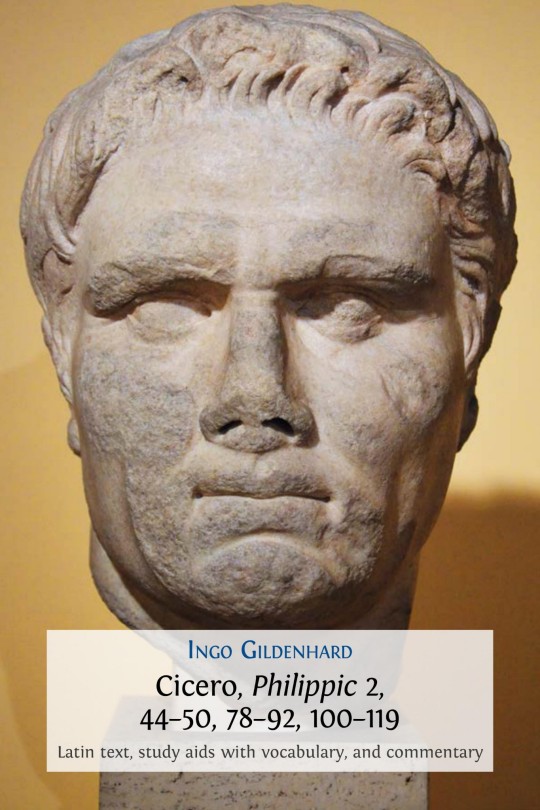
#ive never been interested in philippics 2 in my life#but this book makes me want to read and study the hell out of it#mark antony#marc antony#gaius scribonius curio#curio#roman history#ancient rome#ancient history#cicero#philippics 2#philippics
16 notes
·
View notes
Text
vote for your fav of my kink ocs! the basics and propaganda are under the cut 👇
info 👇👇👇👇👇👇

MAX: she-her / cis woman / bisexual / 50 sex: vers tickling: top role: soft domme
APPEAL: recent divorcee getting into kink for the first time. a gentle and encouraging tickler. milfy. big boobs (WILL let you suck on them)

DR MIN: they-them / agender / bisexual / 57 sex: top tickling: top role: dom
APPEAL: mad scientist. wants to strap you down and experiment on you. always wearing medical gloves. might test out a serum that makes you 10x more sensitive. meanest tickler on the list.

DAWA: he-him / cis man / gay / 41 sex: top tickling: top role: dom
APPEAL: hairy muscly bear. um.. sweaty and musky. loves to wrestle and chase ... look out he's gonna getcha!!! my fav of my ocs I LOVE U DAWA

PR♆NCE NEPTUNE: they-them / nonbinary / bisexual / 33 sex: vers tickling: top (...most of the time) role: neutral
APPEAL: pop star. hedonist. they'll lay you down on silk sheets and stroke you all over with a peacock feather. huge on praise/worship. exhibitionist.

0 (oh): they-she / android sex: top tickling: switch (...literally has switches. that you can turn on and off) role: neutral
APPEAL: curious android who wants to poke around your body .. curious about having you poke around in her wires too. just discovered gender and wants to get dressed up pretty.

PHILIPPE: he-him / trans man / bisexual / 31 sex: vers tickling: switch role: sub
APPEAL: fairly vanilla + new to kink. belly fan. voted most likely to go easy on you, but that doesn't mean he won't tease you about it all. super playful (and he plays fair!)

EVER: she-her / trans woman / bisexual / 33 sex: bottom tickling: switch dominance: domme, brat
APPEAL: huge flirt. foodplay thing. does NOT play fair. will let you wreck her just so she can get you back twice as bad after. hugely into genital tickling especially.

NICOLA: she-her / cis woman / lesbian / 28 sex: vers tickling: bottom role: sub, neutral
APPEAL: shy girl. hard af to make her laugh. not very ticklish at all but she still loves it. oral fixation, loves giving head, loves getting head. will do anything to get her sides gently stroked <3

SACHA: they-he / nonbinary / gay / 29 sex: bottom tickling: bottom role: switch, power bottom
APPEAL: hardcore endurance player. you WILL tap out before they do. has a million body mods and sensitivity enhancements. strong contender for most ticklish person in the galaxy.

TIM: he-him / cis man / bisexual / 38 sex: top tickling: bottom (but will not admit it) role: sub
APPEAL: most embarrassed man you will ever meet. TERRIFIED of being tickled but thinks about it 24/7. extremely sensitive ears. don't whisper in his ear he'll cum in his pants!!!
#🐁#polls#i think this is the most comprehensive breakdown ive done of my ocs .. go figure a poll would make me finally get around to it#crew#SIGH ok .. tagging time again here we go#max#min#dawa#neptune#oh#philippe#ever#nicola#sacha#tim
8 notes
·
View notes
Text
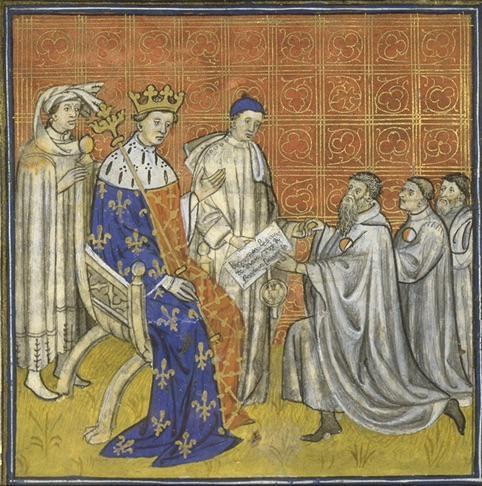

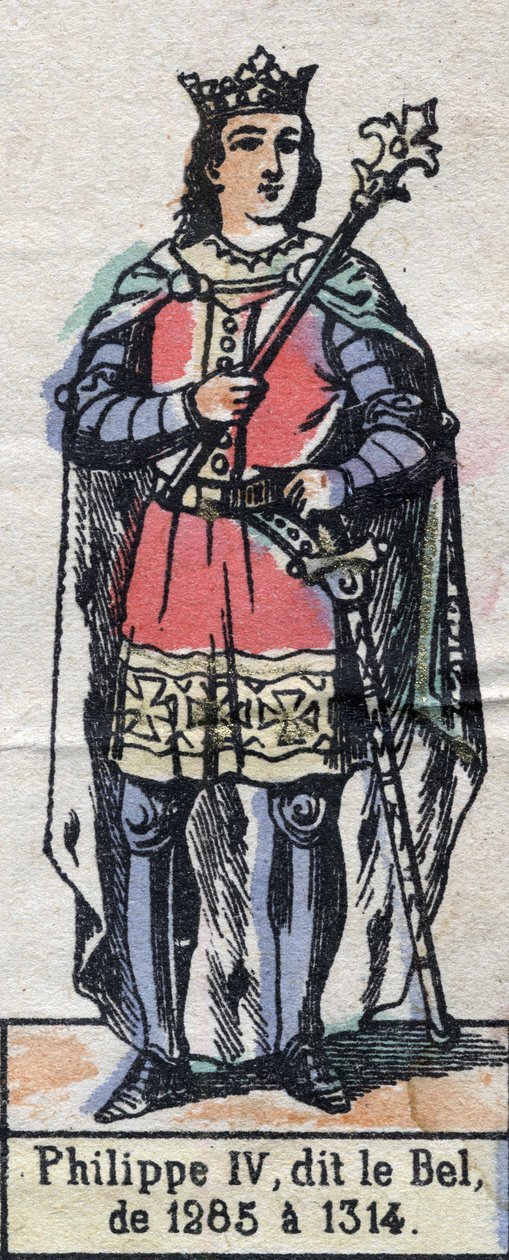
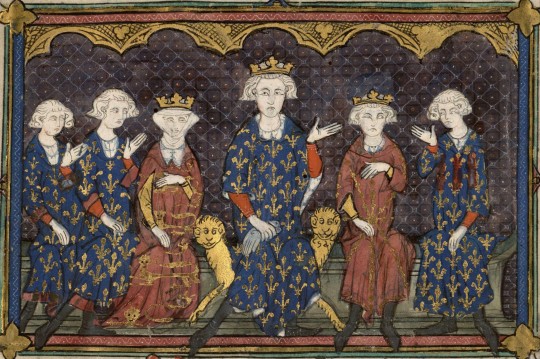
What do y'all know about philippe le bel ?! 🦅🦅🦅🦅
#vintage art#art#philippe le bel#hundred years war#french history#medieval history#phillip iv#phillip the fair#european history#medieval manuscript#medieval art
6 notes
·
View notes
Photo

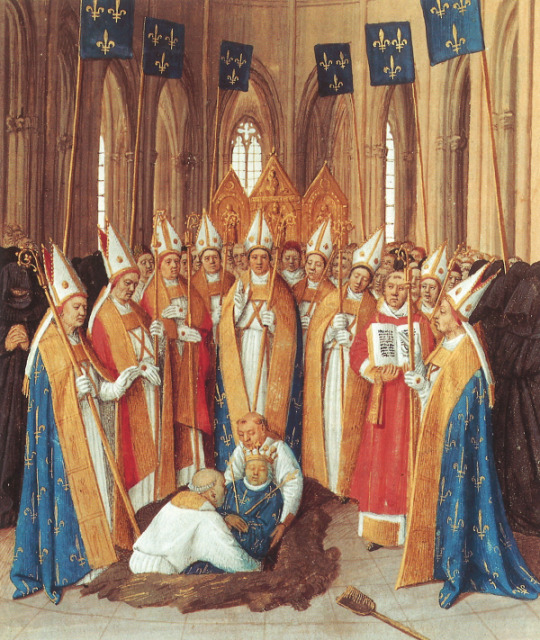
Death and burial of Philippe IV le bel of France.
#art#manuscript#illuminated manuscripts#philippe iv de france#maison capét#maison capétienne#house capet#phillip iv of france
5 notes
·
View notes
Text
Munich / München Day 1 part 2
Munich / München Day 1 part 2
Frauenkirche, Odeonplatz, Feldherrhalle and more form part of Day 1 part two in Munich/ München. Much like Munich Day 1 Part 1, it’s a bit of a jumble. With most sites in the city only a short walk from each other, many places were passed multiple times each day. Meaning some pictures taken on day three for part of day 1 etc. Both part 1 & part 2 can easily be done in one day (and more).…
#Beer Gardens#Beer Hall#Beer Hall Putsch#Cathedral of Our Dear Lady#Cenotaph of Emperor Louis IV#Dom zu Unsra Liabm Frau#Emperor Louis IV#Feldherrnhalle#Franz Josef Strauss#Frauenkirche#Hofbräuhaus München#Johann Tilly#Karl Philipp von Wrede#King Ludwig I of Bavaria#Loggia dei Lanzi#Mahnmal der Bewegung#Marienplatz#München#Munich#Odeonplatz#Sendlinger Tor#Theatine Church#Thirty Years War#Viktualienmarkt Beergarden#WWII
0 notes
Text
November 9, the fateful day of the Germans in history
Nov 9, 1313: Battle of Gammelsdorf - Louis IV defeats his cousin Frederick the Fair marking the beginning of a series of disputes over supremacy between the House of Wittelsbach and the House of Habsburg in the Holy Roman Empire
Nov 9, 1848: Execution of Robert Blum (a german politician) - this event is said to mark the beginning of the end of the March Revolution in 1848/49, the first attempt of establishing a democracy in Germany
Nov 9, 1914: Sinking of the SMS Emden, the most successful German ship in world war I in the indo-pacific, its name is still used as a word in Tamil and Sinhala for a cheeky troublemaker
Nov 9, 1918: German Revolution of 1918/19 in Berlin. Chancellor Max von Baden unilaterally announces the abdication of Kaiser Wilhelm II and entrusts Friedrich Ebert with the official duties. At around 2 p.m., the Social Democrat Philipp Scheidemann proclaims the "German Republic" from the Reichstag building. Two hours later, the Spartacist Karl Liebknecht proclaims the "German Soviet Republic" from the Berlin City Palace.
Nov. 9, 1923: The Hitler-Ludendorff Putsch (Munich Beer Hall Putsch) is bloodily suppressed by the Bavarian State Police in front of the Feldherrnhalle in Munich after the Bavarian Prime Minister Gustav Ritter von Kahr announces on the radio that he has withdrawn his support for the putsch and that the NSDAP is being dissolved.
Nov 9, 1925: Hitler imposes the formation of the Schutzstaffel (SS).
Nov 9, 1936: National Socialists remove the memorial of composer Felix Mendelssohn Bartholdy in front of the Gewandhaus concert hall in Leipzig.
Nov 9, 1938: November Pogrom / Pogrom Night ("Night of Broken Glass") organized by the Nazi state against the Jewish population of Germany.
Nov 9, 1939: The abduction of two british officiers from the Secret Intelligence Service by the SS in Venlo, Netherlands, renders the British spy network in continental Europe useless and provides Hitler with the pretext to invade the Netherlands in 1940.
Nov 9, 1948: Berlin Blockade Speech - West Berlin mayor Ernst Reuter delivers a speech with the famous words "Peoples of the world, look at this city and recognize that you cannot, that you must not abandon this city".
Nov 9, 1955: Federal Constitutional Court decision: all Austrians who have acquired german citizenship through annexation in 1938, automatically lost it after Austria became sovereign again.
Nov 9, 1967: Students protest against former Nazi professors still teaching at German universities, showing the banner ”Unter den Talaren – Muff von 1000 Jahren” ("Under the gowns – mustiness of 1000 years", referring to the self-designation of Nazi Germany as the 'Empire of 1000 Years') and it becomes one of the main symbols of the Movement of 1968 (the German Student Movement).
Nov 9, 1969: Anti-Semitic bomb attack - the radical left-winged pro-palestinian organization “Tupamaros West-Berlin” hides a bomb in the jewish community house in Berlin. It never exploded though.
Nov 9, 1974: death of Holger Meins - the member of the left-radical terrorist group Red Army Faction (RAF) financed in part by the GDR that eventually killed 30 people, dies after 58 days of hunger strike, triggering a second wave of terrorism.
Nov 9, 1989: Fall of the Berlin Wall - After months of unrest, demonstrations and tens of thousands escaping to West Germany, poorly briefed spokesman of the newly formed GDR government Günter Schabowski announces that private trips to non-socialist foreign countries are allowed from now on. Tens of thousands of East Berliners flock to the border crossings and overwhelm the border guards who had not received any instructions yet because the hastily implemented new travel regulations were supposed to be effective only the following day and involved the application for exit visas at a police office. Subsequently, crossing the border between both German states became possible vitrually everywhere.
233 notes
·
View notes
Text
An absence of family strife
Their marriages were generally fruitful and, what was equally important, their sons were usually loyal, or at least obedient. There are remarkably few instances of rebellion against paternal authority. Robert the Pious did take arms against his father, probably in 996, and his own two sons Henri and Robert united against him in 1030; but these were isolated instances. The only other example that can be offered is the quarrel between Philip I and the future Louis VI, which may be attributed to the malicious intervention of the prince's stepmother, Queen Bertrada. If it demonstrates anything, it shows the patience and loyalty of Prince Louis under considerable provocation. No contemporary royal, or even noble, family, can show anything approaching so favourable a record in this respect.
The characters of the individual kings go some way towards explaining this absence of family strife. The Capetians were good husbands. Only two bastards are recorded for the fourteen kings of the dynasty: Isabella, daughter of Louis VI, who married Guillaume de Chaumont, and Pierre Charlot, the son of Philip Augustus and that 'damsel of Arras' whose name the chroniclers delicately omit. Only three scandals can be pointed to: the elopement of Philip I with Bertrada de Montfort, wife of Fulk of Anjou, on 15 May 1092; the estrangement of Philip Augustus and Ingeborg of Denmark in 1193; and the tragic episode of the daughters-in-law of Philip the Fair in 1314. The only excuse put forward for the first affair was the excessive obesity of the lawful queen ("praepinguis corpulentiae", according to William of Malmesbury); it would not be unfair to point out that the king himself, at the age of forty, was already very fat also. Dr Brachet has plausibly explained the behaviour of Philip Augustus as the consequence of the impact of a momentary anaphrodisia on a nervous system already strained by illness. Certainly, the adventure of the damsel of Arras apart, he does not appear to have led an irregular life. But we must look more closely at the third episode, which throws a vivid light on the moral values of the royal family.
Robert Fawtier - The Capetian Kings of France
#xi#xii#xiii#xiv#robert fawtier#the capetian kings of france#robert ii#henri i#robert i de bourgogne#philippe i#louis vi#bertrade de montfort#isabelle#pierre charlot#philippe ii#la demoiselle d'arras#philippe iv#berthe de hollande#marguerite de bourgogne#jeanne ii de bourgogne#blanche de bourgogne#ingeborg de danemark#foulques iv d'anjou
2 notes
·
View notes
Note
Since you did a male Christine… May we see a female Raoul? 👀
Ok, thank you! Goodbye! Your art style and aesthetic is my favorite thing ever! Toodaloo!
Thank you so much!
This is so funny because Christian/Christine as a man would break the story completely, but Raoul or…Raouelle? Raoula? The plot would be generally the same but characters would have different relationships/dynamics etc. Which is fascinating to think about. Ive referred to her as "Rose" in the past (a childhood nickname given by Christine, and Yes—this means I’ve considered this alternate universe before…sshhh)
Like I think Christine and Rose would’ve been allowed to be much closer…a more intimate relationship for sure. Defo kissed before the Masquerade. Rose wouldn’t have been sent to sea, but put away somewhere in a convent or something, not under Philippe’s thumb as much. Maybe he doesn’t even know where she is until she pops up in Paris? I’ve thought about this too much. I imagine she decides to run away and see Christine in Paris—initially, willing to accept any kind of relationship, as long as she can be near her. In comparison with Raoul: Rose is much more reserved/emotionally guarded, has more of a formal education, has seen less of the world, more committed to propriety, but is still feral/unhinged about protecting Christine. <3

#her with Christian tho? a crime somehow lol#like theyd be too straight to me. fantomestein raoulstine has rhe benefit of a little subversion a little gender mischief …idk#sketch#fantomestein#christine daae#raoul de chagny#rose de chagny unless there is a feminine equivalent to Raoul I didn’t look it up
101 notes
·
View notes
Text
Ich war auf der letzten Langstreckenfahrt mit RB produktiv und habe mal meine persönlichen Lieblingsanekdoten von diesem Blog gesammelt:
Vorab: UQuizze, weil was gibt's wichtigeres
Welche Ausbildung solltest du machen?
Which german tv personality are you? (en)
Tell me about your taste in food and I'll give you a Getränk um das neue Jahr anzustoßen
Welches Weihnachtsgebäck bist du?
Welcher Weihnachtsmarktstand bist du?
Welcher Blechkuchen bist du?
Welches Seemannslied bist du?
Welcher recurring character in meinen ramblings bist du?
Oberthema: ich hasse Reisen und Reisen hassen mich
ein Tscheche ruft das Jugendamt
sorry, mein Chauffeur ist noch Fahranfänger
im Flixbus auf den Spuren Jonathan Harker's
Bahnstreiks, you say? Lass mal Europareise machen
I draw the line at Pfandflaschenmissbrauch
die Autobranche hat ein persönliches Problem mit mir
Wir haben jetzt Autos, aber das hat auch nicht geholfen
Oberthema: das ist kein Stammbaum, sondern ein Problem
Meine Mutter demonstriert ADHS-Symptome und zerstört eine Lampe
Meine Mutter kommt nicht in den Himmel
Schlüsselbeinbrüche im mittelalterlichen Turm
Meine Mutter möchte helfen, ich möchte kündigen
der Scheidungsmops
Meine Mutter desekriert das Oberlandesgericht
Mein Großvater, der Kriegstreiber oder: Eine Frittenbude wird Kollateralschaden
Oma prügelt Keksteig
Wir verbrennen meine Tante
Mutter postet jetzt dick pics
Mein Großvater ist Kunstkenner
Oberthema: Handwerk
he wasn't even forklift certified
Guerilla-Fahrradreparaturen
Bürostuhlbezogene Freiheitsberaubung
Ich schmelze einen Tesa-Roller
Oberthema: Langsam Jacqueline, sonst kotzt du wieder
don't beat a dead horse, beat this live one instead
Hier ist dein Jungpferd. Prepare to die.
Enemy Mine
das Antistresspony stresst mich abartig
Oberthema: ein laufendes Experiment zum Thema Dauerstress und Polykülen
I. good use of slang, buddy II. in which I end up in a car trunk, suffering immensely III. who needs a portland polycule cult when you have... whatever this is IV. just you and me and this guy that neither of us invited
Oberthema: being queer is about the crippling melancholy actually
queer melancholy, ausgerechnet in Irland
die politische Gesamtsituation lacht mich aus
Press the 'randomize' button in the character creation menu, and you shall receive:
Philipp Amthor, Krisenmanager
Aldi-Kurt Cobain teilt Lebensweisheiten
Akkordeon I
Akkordeon II, diesmal mit noch mehr Schloss Einstein Dialogen
Vladi
Meine Lebenssituation entgleitet mir: another saga
Hauptberuflich inhaliere ich Lösemitteldämpfe
Kümmerlich, diese Gallenblase
Hilfe, meine Wohnung leckt
Das nennt sich lösungsorientiertes Mobbing, Junge
Die Pisser gönnen mir die Nordsee nicht
Kernsanierung: The Musical
Mein Sanierungsexperte ist ein bisschen asozial
und zuletzt: miscellaneous soziale Misserfolge. das Leben ist ein niemals enden wollender Loriot-sketch
als Kinder begeisterten wir uns für Pyrotechnik
fuck you and the e-roller you rode in on
Captain, wir ha'm einen Marderschaden
ra ra rasputin russia's greatest humiliation kink
ich betreibe Konfrontationstherapie
man stelle sich Gollum in seiner Grotte vor: meine Ein-Mann-WG
wirf mich, du Hund
that time I brought a fake beard to a knife fight
Im Edeka meines Vertrauens beschimpfen sich die Mitarbeiter
WDR-Redakteure erklären mir soziale Gerechtigkeit
Johanna findet mich schwierig
Falls das annähernd unterhaltsam war, I have a tip jar
339 notes
·
View notes
Text
Chapter 7: something gave you the nerve to touch my hand
series masterlist previous part || next part

pairing: colin bridgerton x enemy!fem!reader WC: 3.4k words
Warnings: period-typical gender roles, a small part of the dialogue is in Spanish, idiots in love-ish moments (maybe idiots in non-hate?)
Summary: It took precisely two days in England for you to utterly despise Colin Bridgerton. It took him approximately twelve hours after that to hate you right back. But he doesn't care that you're the only person in the ton who doesn't like him. You're set to marry someone else anyway, right?

June 1, 1816 – A few whispers have been floating around about Lord Arthur Barlow’s whereabouts following his escapade with Miss Barrington at the Bridgerton ball, but this author must sadly say that she has no credible information on the subject. The Duke has likely paid his staff handsomely to avoid any news reaching the curious ears of the ton, much to our disappointment. While propriety suggests that his wedding plans to Miss Barrington should be in full swing, Lord Barlow is not particularly known for his propriety, and therefore we cannot assume anything.
Among other Montclair-related news, two of the Count’s children arrived in London yesterday: Lord Philippe Montclair IV and Lady Isabelle de la Torre, accompanied by their respective spouses and children. Is this unexpected gathering somehow linked to Lady Y/N's recent entanglement in scandal, or is it merely a coincidental family reunion?
You wrung your hands nervously in your carriage bound for Hyde Park, not quite able to sit still. Beside you sat Leonor, Philippe's wife, while your sisters, sitting opposite from you, observed your anxious demeanor with growing impatience. Isabelle, in particular, seemed annoyed by your restless gestures, her irritation palpable in the air.
“Y/N, for heaven's sake, it’s not like you’ve been compromised in any way!” said Isabelle, exasperated. “You’ll find someone else, and the Duke’s betrayal will be but a distant memory.”
It was easy for her to say; after all, her own search for a husband had been nothing short of a fairy tale. Unlike the rest of your siblings, Isabelle had had a love match from the beginning, and it only made it easier that Carlos, her now-husband, had strong ties to the royal family. Though her love story had been one for the ages, the fact that it had happened so easily was making her quite unsympathetic to your loss of a Duke you weren’t even properly interested in.
“I might as well have been! Lady Whistledown is still mentioning my involvement in the scandal, and your presence isn’t helping.” You thanked the universe that your mother was on another carriage with Louis, Carlos, and Philippe, and hadn’t heard you being rude toward your sister.
"And why should we care about the musings of this Lady Whistledown?" retorted Isabelle with a dismissive wave of her hand.
“These English people treat that gossip column like gospel,” said Charlotte, crinkling her nose in disdain. “Though I dare say, Y/N, your predicament isn't as dire as you're painting it," she added, casting you a knowing glance.
"You two can afford to be cavalier about it, being safely married," you sighed, feeling defeated, and turned your gaze back out the window.
As your carriage rolled into the park, Leonor leaned in, placing her hand over yours. “No te preocupes, cariño,” she whispered reassuringly, so only you could hear (Don’t worry, sweetheart). “En todo caso, te vienes a España con tu hermano y conmigo” (In any case, you can come to Spain with your brother and me).
You smiled at her, resigned, but grateful for her offer. As you surveyed the bustling crowd outside, predominantly comprised of eligible men, the allure of Spain beckoned. It would certainly have better weather than London. And at least there was no Lady Whistledown in Salamanca. Though with the seemingly endless sources the woman had, you wouldn’t doubt her abilities to follow you there, too.
Stepping down from your carriage and walking toward the crowd of people in the park, you made eye contact with one of the gentlemen who had called on you yesterday. Though his poem had nearly put you to sleep, you smiled politely anyway. Perhaps he would be the first to talk to you today and ask for a turn about the park, and you would be able to finally relax in the knowledge that at least one person was still interested in you.
Though you hadn’t seen or heard from Lord Barlow since the Bridgerton ball, he still lingered in your mind. He ended up being just like any other man, you thought, annoyed. You hadn’t necessarily expected him to be the picture of attentiveness and love, especially not when you had only known each other a little over a month, but it was still disappointing to see how it had all turned out.
"Lady Montclair," a voice interjected, drawing your attention to your right. Startled, you turned to see Colin Bridgerton, sporting an uncharacteristically earnest smile.
“Mr. Bridgerton?” you inquired.
You had thought your dance two nights prior had been a one-time event, a small courtesy on his part, for Eloise, so you didn’t look a complete fool upon your re-entry to society. So why was he here now? Had he come here to resume tormenting you? You weren’t quite sure you had the energy for that today, already feeling the familiar flutter of nerves as you thought about how many men you would have to impress and the intense scrutiny you would face from the rest of the ton.
“Would you care for a promenade?” his voice, a gentle invitation, broke through your thoughts.
“A prom- What?” you said lowly, careful that no one would hear you. “You already danced with me once, and it was more than enough,” you assured him.
Colin was fighting an internal battle. He was torn between still being absolutely enchanted by you after one dance, and the larger part of him that was annoyed that you apparently didn’t want to speak with him today. Yet, true to form, Colin’s more combative side won out.
“Well, I don’t particularly see gentlemen lining up to speak with you today, so I rather think you might need some more help,” he shot back.
You felt your face flush as you gasped in offense. “That is so patronizing. I’ve barely been here three seconds! I hardly think that amount of time is indicative of whether any suitors would like to speak with me today.”
It was true; Colin had rushed to greet you moments after you had stepped down from your carriage. But aside from the fact that he was embarrassed by his eagerness and trying to cover it up, he was not about to let up, not against you.
“Do you think, for once in your life, you could engage with me without throwing a fit?” he asked you, anger seeping into his words.
You were speechless, your eyes wide as you stared at him. Your instinct would have been to get mad at him, but unfortunately, he was right. You were struggling to let yourself be vulnerable with Colin, never mind how good of a time you had had dancing with him. But you were too stubborn to accept his offer to walk with him. You simply stared at him, your eyes swimming with uncertainty, and silently willed him to keep pushing you to accept his help. It was the only way you would allow yourself to do it, and you were relieved when he held out his arm for you to take.
“Come along,” he said, rolling his eyes. “For both our sakes, we should just walk to avoid a scene.”
“Very well, then,” you relented, slipping your hand into the crook of his elbow. You were momentarily distracted by the feeling of his arm beneath your touch. It lit a fire inside of you that you weren’t familiar with, and you suddenly found yourself out of breath.
“My sister can chaperone,” he suggested, gently guiding you toward where his family was situated.
You could only nod dumbly in response, the flutters in your lower abdomen only growing stronger when he placed his hand over yours. Vaguely registering Daphne and Simon waving at you, you smiled and greeted them, grateful to have something else to focus on that wasn't Mr. Bridgerton's very well-sculpted arms.
As you began to stroll, the Bassets a few paces behind you, you felt that your voice was stable enough to begin a conversation. “So, Mr. Bridgerton, indulge my curiosity and tell me more about your travels. Have you ever been lost at sea?”
Colin smiled at you, unable to hold back his fondness for you once again, and his breath was stolen from his lips as he made eye contact with you. You looked back eagerly, staring straight into him, and he was momentarily speechless. But you blinked, indicating that you were still awaiting a response, and he realized he had forgotten himself once again in your presence, an alarmingly increasing trend.
After clearing his throat, Colin answered, “A few times, yes. Most unfortunate was the time we became lost in the twilight hours when it was freezing out, but the stars proved an exceptionally useful tool in helping us find our way.”
“The stars?” you asked, curious. Could it be that you and Colin had yet another thing in common? It was hard to parse who he had been with you the past few days with the man you had a rivalry with practically from the moment you arrived in England. Who was the real Colin?
“Yes, indeed,” affirmed Colin, his voice revealing a hint of excitement. “They’re actually quite a useful tool. Regardless of our whereabouts, we look at the same constellations, albeit from differing vantage points. For instance, if you look up at the sky any of these nights, and you see three stars close together arranged in a line, that’s-”
“Orion’s belt,” you finished for him, your voice soft. Then, seeing his amused, and admittedly curious, smile, you explained, “My governess used to take me outside at night, even in the winter, so I could look at the stars. I know a fair few constellations, and I always like to know which ones are visible to me.”
Colin shook his head in wonder. The universe was a cruel thing, to make you so perfectly suited to him and make you hate him more than you hated, apparently, anyone or anything else. But it wasn’t like he liked you any better, he reasoned.
“I’d wager you’d be a wonderful navigator, then,” he said. “I’m certain you’d never get lost in treacherous waters.” He had to physically bite his tongue to keep from suggesting that you go with him on his next trip around the world.
You hummed softly in response. It never quite felt like you had a grip on where you were going. Usually, you just felt like you were groping around in the dark, desperately trying to find the right way to go.
The promenade stretched on longer than anticipated, with both of you engaging in pleasant conversation throughout, and more than a few stolen glances. It was a shock, really, when Daphne cleared her throat politely behind you and Colin. You suddenly realized that you and Colin had been walking together for longer than was typically appropriate.
“It might be time for Lady Montclair to promenade with someone else,” she suggested gently, a sympathetic smile on her face as she looked at Colin's crestfallen face. Turning away from you, she leaned over and whispered something unintelligible to Simon as the pair walked away back toward the rest of the Bridgertons, allowing you and Colin a few moments of privacy.
“Thank you,” you smiled at him, finding yourself slightly disappointed that your time together was ending. “I’m not quite sure I would have needed your saving again, but I appreciate it nonetheless.”
Suddenly, you noticed a piece of lint on the lapel of Colin’s jacket. You reached over, almost instinctively, and picked it off. Your fingers barely grazed his chest, and his words caught in his throat as he saw your hand reach toward his chest in slow motion.
The two of you stood still, staring at each other for what felt like an eternity, one of your hands still extended toward him. Realizing your actions necessitated an explanation, you hurriedly brought your hand back to your side again and averted your gaze, avoiding eye contact with Colin.
“Lint,” you explained awkwardly. “On your coat.”
Oh, how could you have done something so brash? And in such a public setting, too, you scolded yourself.
“I-Th-Well, I-Thank you, Lady Montclair,” Colin stuttered out, his brain short-circuiting from your intimate gesture. But you were already walking away, fists clenched at your sides as he saw you walking back to your family.
Once more, you were intercepted by what could only be described as a horde of men vying for your favor. But, just like two nights prior, all Colin could feel was a pleasant warmth spreading through him as he watched you walk away, your laughter ringing like music in his ears.
He knew what that was like now. To have you genuinely laugh at something he said. And it was different from how you were with these men. Even different from how you had been with the Duke. His heart warmed when he realized he had something of you that no one else did, and he wanted to bottle up your laugh and keep it in his breast pocket, forever a reminder of you near his heart.
A short distance away, Carlos observed with amusement as Colin stood there, seemingly transfixed by your departure. Standing beside him was Leonor, who had also been privy to the entire spectacle. The two often found themselves together during family outings, enjoying speaking in Spanish for a change.
“La ama,” Carlos said to Leonor, his tone tinged with amusement at Colin's evident infatuation (He loves her).
Suppressing a chuckle, Leonor discreetly cleared her throat. “Y cuanto tiempo crees que será hasta que se de cuenta?” she quipped in response (And how long do you think it'll be until he realizes?).
---
In the late afternoon, you found yourself seated by the pianoforte, the pleasant notes of your scales filling the room. Across from you, your mother quietly engrossed herself in a book, while Isabelle diligently worked on her needlepoint. Suddenly, the tranquil atmosphere of your sitting room was disrupted as your butler made an unexpected entrance.
“Lady Montclair, a visitor,” he said politely, bowing slightly.
Your fingers stopped playing and you looked toward your mother, who had a questioning look on her face.
“I hadn’t been expecting anyone. And at this hour? Is everything alright?” she asked the butler.
His face flushed slightly. “My apologies, I meant Lady Y/N Montclair,” he corrected himself. “It’s the Duke.”
But he barely had time to announce your visitor before Lord Barlow strode into your sitting room, hair disheveled and bags under his eyes. He looked positively ghastly, and you wouldn’t have doubted it if he told you he hadn’t slept in a week.
He was panting and slightly sweaty, clearly having rushed over to your home for some unknown reason, when he took off his hat and crouched next to the pianoforte bench.
“Forgive me,” he addressed the other women in the room. Then, turning back to you, he roughly grasped your hand, placing a wet kiss on the back of it. You slightly cringed in disgust, not particularly wanting this man anywhere near you.
“Y/N, my darling, I am so terribly sorry for what happened at the Bridgerton ball. It was unforgivable. Except that you must forgive me!” he pleaded, voice full of desperation.
You were utterly confused, and more than a little angry. Who did this man think he was, barging into your home at this hour and demanding forgiveness? You shared a look with your mother, who looked equally as scandalized.
“Lord Bar-” you started, but before you could finish, he interrupted you, grasping your hand even tighter.
“No! Not Lord Barlow. Arthur. Your Arthur. It’s me; I’m here. What happened with Miss Barrington was a foolish mistake, and it will never happen again. Marry me, Y/N. Marry me and make me the happiest man in all of Mayfair. In all of England, even. Please,” he begged.
Out of the corner of your eye, you saw Leonor leaving the room quietly, and your stomach churned uncomfortably at the idea of having to face this man on your own. You breathed deeply, calming yourself with the thought that your mother remained in the room before you addressed Lord Barlow.
“I don’t understand,” you said, shaking your head. “What of Miss Barrington? She will be ruined if you do not marry her.”
He scoffed, throwing his head back and shaking his head in annoyance. “What of her? She is not as important to me as you are,” he said lowly. “I do not have with her what I have with you. I need you, Y/N. Please marry me.”
Letting the anger that had been slowly bubbling inside you take over, you snatched your hand out of his grip and stood up, towering over him. “Are you quite finished? You are completely unbelievable. I will not marry you, your Grace, and it is egregious that you would even suggest it. Do you truly have so little respect for Miss Barlow that you would leave her, ruined, as you married someone else? Do you truly think so lowly of me that you thought I would say yes?”
“Barlow, take your leave,” came a commanding voice from the doorway before the Duke could respond to you.
With a surge of relief, you caught sight of Louis and Philippe standing firm with Leonor at their side, their expressions firm and determined, while she was looking anxiously between you and Lord Barlow.
But the Duke was relentless, his desperation palpable as he pleaded his case, his words brimming with urgency. He stood up from where he had been kneeling and turned to face your brothers. "You don’t understand. I must marry your sister. I must!"
“I believe my brother asked you to take your leave, your Grace,” said Philippe, voice cold and cutting. “Louis, if you could be so kind as to escort Lord Barlow out.”
Louis wasted no time, roughly grabbing Barlow’s arm and dragging him away from you as the man protested profusely. But your brother wasn’t going to let him hurt you again. It was bad enough that he had already done it once, but Louis would rather come to blows right now in your home than let the Duke stand in your presence for another second.
As Louis ushered Lord Barlow out of your sitting room, Philippe placed a protective hand in front of Leonor and pulled her behind him. Ensuring his wife’s safety, he turned to you, a concerned expression on his face.
“Y/N, are you alright?”
But you didn’t have time to answer, your father storming into the room with fury in his eyes.
“Was that Barlow I saw in the hall? Can someone give me an explanation?" he demanded, his gaze fixed on your stricken expression.
Your voice trembled as you confessed, still reeling from the shock of the encounter. "He asked me to marry him," you admitted, the words hanging heavily in the air.
“She said no, of course. And put him in his place,” your mother added, eyes wide and fixed on the doorway still. It seemed that Lord Barlow’s unexpected appearance had been an unwelcome shock for her, too.
Your father placed his hands on his hips, staring at the two of you in disbelief. “Well done,” he finally conceded after a few moments of silence.
You nodded meekly in response, not quite feeling anything right at this minute.
“He is not worthy of you, Y/N. A title and fortune are important, of course, but so is honor. And he clearly has none,” said your father, disgust clear in his voice.
You’d heard this speech a million times, but this time the words rang loudly in your ears. A title and fortune are important, his words echoed in your mind. It was what your father always said, but this time you couldn’t help thinking: Colin Bridgerton, whom you had developed an inexplicable fondness for, possessed neither title nor fortune.
But as quickly as the doubt arose, you cast it aside. You reminded yourself firmly that Colin was not the sort of man a Montclair could marry. The reality was stark, and you refused to entertain the notion that such a match could ever be possible. You weren’t even sure that you liked the man, why were you thinking of marrying him?
—
previous part || next part || buy me a ko-fi!
Tag List (get added here): @marvelspogue @5sosmakesmelaugh5 @maddiebaddie1 @livingthatprovinciallife @willieoo @jessica-1120 @dreadity @h0eforwadewilson @ziarah @wordsgodeep @mrs-c-bridgerton @dianxiaxiexie @like-gabriel-and-castiel @snapeeballsack @sosasi521-blog @saturnssunflower @indecisive-empanada @invisible-dreamers-world @angerpearl @ssexsellls @smugrogerina @cherrysxuya @theonekaysstuff @idkwhatimdoing6 @ella33 @tiger1357890 @mswwvaleska @bozoqt @unadulteratedwolfcrown @anthonylockwoodandco111 @beamuont @adxrekyun @stevenwithav01 @peter-parker-tony-stank-trash @none-of-this-makes-any-sense @superhighschoollevelnerd-blog1 @patty2191 @expensiveinnocentgurl @erysione @hockeybabestars @inkwriter122 @nighttimemoonlover @chamomiletea-beforebed @alexendria-rose @watersevn @funalpaca @babypink224221 @littlecoffeeadict @agoldenwoe
@sydneygal3107
#bridgerton#colin bridgerton#colin bridgerton x reader#enemies to lovers#colin bridgerton imagine#colin bridgerton fanfic#colin bridgerton fanfiction#bridgerton fanfic#bridgerton fanfiction#bridgerton imagine#bridgerton x reader#colin bridgerton fluff#colin bridgerton angst#colin bridgerton x enemy!reader#bridgerton x you#colin bridgerton x you#bridgerton fluff#bridgerton angst#lost in translation#lost in translation: writing
342 notes
·
View notes